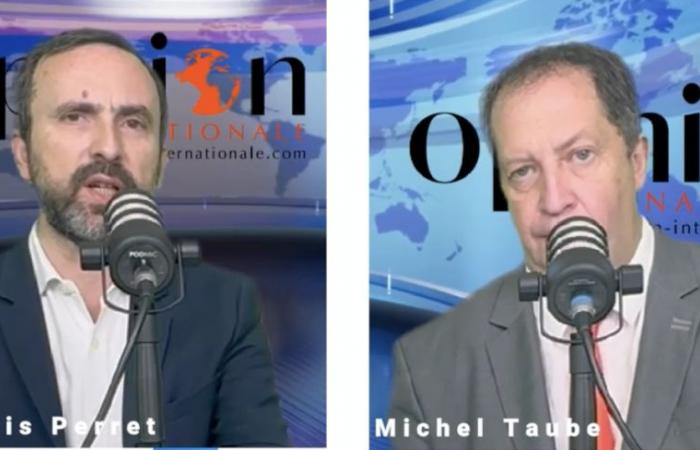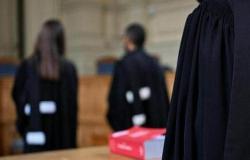François Perret, you are a candidate for the direction of Sciences Po Paris, a key institution of the Republic, but an institution in very serious crisis. Could you introduce yourself in a few words?
I am passionate about economics, social sciences and higher education.
I have made my skills and this passion available to play a bridging role between the public sector, in which I worked for a long time at the Ministry of Economy and Finance, and the private sector, where I am a facilitator of the relationship between large companies and SMEs.
You are at the crossroads of public and private. We’ll come back to that. But to begin with, you have already been a candidate for the direction of Sciences Po in 2021. Here you are a candidate again in 2024. Why this perseverance? What is the deeper meaning?
You remember this former President of the Republic who, in the morning, got up, shaved and thought about the presidential election. Since 2021, I get up every morning and think about the management of Sciences Po.
Because Sciences Po is a school of which I am very proud. I studied there and learned a lot thanks to the teaching of my professors in social sciences, economics, public finance and law.
But unfortunately, Science Po is also a school that has been widely criticized for several years and I cannot accept that.
I have a fight to lead so that Science Po is restored to its dignity and to the pride of all those who knew it.
Contrary to what its detractors say, Science Po is a very good school for training elites. We can be proud of it. It trains people to be open-minded, critical and synthetic.
If you are appointed head of Sciences Po, what will be your first actions to get Science Po out of the crisis, in terms of governance on the one hand and to remedy the excessive politicization of the School on the other?
We live in a paradox from which the institution must emerge as quickly as possible: while Sciences Po is capable of displaying extraordinary performances recognized internationally, there is a total lack of confidence that crystallizes the institution among students, teacher-researchers and all those who work there on a daily basis. There is a big gap between the reality of this magnificent school and the way it is talked about in the media and outside in general.
For example, it is not widely known, but Sciences Po is the second university in the world in political science, in the 2024 QS international ranking.
And on the other hand, for several months, Sciences Po has been regularly dragged through the mud. It is therefore particularly unfair.
The priority issue is therefore to restore its image, to restore confidence in the institution, to those who work and study there. There are 100,000 alumni who could be tempted to drop out and investors who are wondering.
Let’s restore their confidence!
Because to get Sciences Po out of the crisis, we must first of all recreate this trust by renewing dialogue between the different parties. We are in a very particular period in the life of the Republic. And Sciences Po cannot be a stranger to it.
France is going through a political crisis. Can the political situation in our country have an impact on the selection and appointment of the next director of Sciences Po Paris?
A political crisis always generates a set of constraints and uncertainties. But we can also see opportunities there.
For people who work and study at Sciences Po, the political game is a magnificent field of observation. There are many researchers who currently analyze political life. They decipher the dissolution of the National Assembly, its consequences and this new political landscape which is forming before our eyes.
Sciences Po actors experience this extraordinary opportunity to watch the political system transform firsthand.
On the other hand, let’s be clear: and to answer your question directly, the selection of the director of Sciences Po is based first of all on their authorities.
There is a proposals committee which will choose a certain number of candidates who will be auditioned in September before two Sciences Po authorities, the Council of the Institute and the Board of Directors of the FNSP, formally choose a candidate.
At the end of this election, which is very decentralized, the name of the successful candidate will be transmitted to the government so that the President of the Republic can, in the form of a decree, ratify the appointment of the future head of Sciences Po. In the current context, this may, it is true, generate confusion.
You have held positions of responsibility in both the private and public sectors.
Should businesses play a role in the destiny and development of Sciences Po Paris?
There is no future for Sciences Po, nor for its students, without constant rapprochement with the business world, which is a fantastic place for learning and professionalization.
Moreover, this is confirmed in the paths of students who have gone through Sciences Po, where almost two thirds of students now go into the private sector.
I am very keen for Sciences Po to strengthen its ties with the business world. Not only large companies, as is already done a lot, but also more in the future, with start-ups, SMEs and ETIs, but also professional organizations without forgetting the associative world.
So many essential opportunities to strengthen the employability of students, nearly 15% of whom have not yet found a job six months after obtaining their diploma. This confirms the need to develop the professionalization of Sciences Po students.
If you are appointed director of Sciences Po Paris, what will be your first message to IEP students?
I will first address all of the communities that make up Sciences Po to confirm to them how proud it is to work for this institution.
To the students, I would say how much joy they must have in learning and in particular in learning to debate. I insist a lot on the fact that Sciences Po is a place of debate and not a place of political combat. There are political arenas for this.
I would show my support to the teacher-researchers in their dynamic of research, in-depth research and the necessary gains in terms of performance in certain social science disciplines. Because Sciences Po can claim almost the same performance in sociology, law, economics and history, by recruiting good teacher-researchers and working on the promotion of their work.
And then, we must not forget that Sciences Po also has people extremely dedicated to serving this institution who also work in so-called support functions (finance, marketing, HR, etc.).
As head of the Institute of Political Studies, I would ensure that everyone works together to define a three-year project.
Thank you François Perret for responding to Michel Taube for Opinion Internationale.






